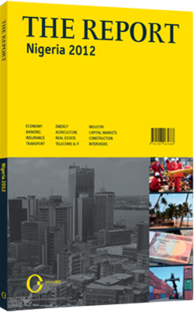Swag, dance and rock ’n roll: Nigerians are dancing to a new beat that resonates globally
The world’s traditional perception of Nigerian, or “Naija”, music as merely a mimicry of Western music would be false if applied to the industry today. A decade ago, Nigerian singers and songwriters largely kept to imitations of popular American styles, like R&B and hip-hop, lacking the confidence and the platform to nurture a more idiosyncratic sound. Now, times have changed. Nigerians today produce their own Afro-centric, polyrhythmic sound that has been blended with swagger and widely recognisable Western-style lyrics – and not only by adding the prefix “Afro”. In fact, Nigerian artists are now partnering with the very artists they used to mimic, such as Senegalese-American artist and producer Akon and US rapper Rick Ross.
CHANGE IN DIRECTION: Starting in the early 2000s an increasing number of regional hit records and a higher frequency of Nigerian music on the playlists of radio stations changed the way people thought about local music. The real catalyst came with the airing of reality TV show Big Brother Nigeria in 2006. The show’s producers rejected the catalogue music that came with the franchise, fuelling a “re-awakening of pride in the Nigerian sound”, according to Olisa Adibua, programme director of local radio station Beat 99.9 FM. “Nigerian music was not only played during the show, but at the events and after-parties that followed, giving artists a springboard,” he said. Already established names like Innocent Ujah Idibia, known by his stage name 2Face Idibia, and Dapo Daniel Oyebanjo, or D’banj, skyrocketed to the top of the playlists. By 2007 Nigerian beats had spread contagiously among clubs and bars. While Big Brother Nigeria marked a significant change, notable artists had gained a foothold in the continent previously. P-Square, the twin duo Paul and Peter Okoye, released their second album, “Get-Squared”, in 2005 – selling over 10m copies. In December 2011 they signed to Akon's Konvict Musik label and re-released their earlier hit “Chop my money”, featuring Akon and fellow Nigerian rapper May D. This reached 9m views on YouTube by September 2012. P-Square’s other notable partners have included Rick Ross in a project that remixed “Beautiful Oyinye”.
GOING GLOBAL: Although the way to reach a worldwide audience has been paved, for now it seems the Naija beat appeals primarily to an African audience. “Both the UK and US have a huge Nigerian population, which can figure as a stepping stone, but much of Africa remains unchartered, and therefore, our primary focus,” Peter Okoye said. Nigeria, with a population of over 160m, half of which is under the age of 25, provides a logical jumping-off point to other African nations.
The industry’s reach is supported by an increasingly digital audience in Africa and beyond. New platforms such as iRoking, Mytruspot and the mobile phone application, Spinlet, have allowed Nigerian artists access to millions of people around the continent and the world. Facebook and Twitter have also benefitted the artists, as Nigerians use these sites to exchange the latest music news. “The crowd is young, hungry and very critical, but the talent is abundant so, in the end, the audience is always pleased,” said Abidua.
A NEW ERA: Current Naija music has few underlying political themes, marking a distinction from the music of Nigerian legend Fela Kuti. Rising to fame in the 1970s, Kuti established the genre of Afrobeat, using his songs to criticise the country’s rulers and mobilise the masses to push for political reform. This new music is instead inspirational and makes “people want to sing, dance and forget their worries”, according to Okoye.
Besides its economic and cultural benefits, the emerging Naija music industry is helping to improve Nigeria’s image on the world stage. If piracy is curbed, copyright laws are firmly established and the distribution model is improved, the music sector’s already generous revenues could benefit young and upcoming artists by expanding the talent base and accelerating the pace of innovation. Adibua sees a bigger purpose: “Developed countries came here to conquer our minerals. We are now on our way to conquering their radios.”
You have reached the limit of premium articles you can view for free.
Choose from the options below to purchase print or digital editions of our Reports. You can also purchase a website subscription giving you unlimited access to all of our Reports online for 12 months.
If you have already purchased this Report or have a website subscription, please login to continue.

